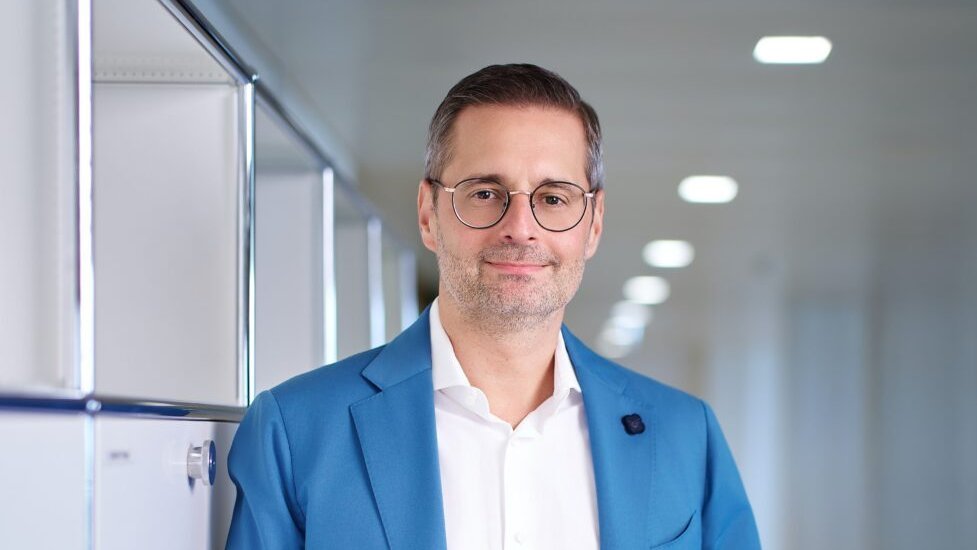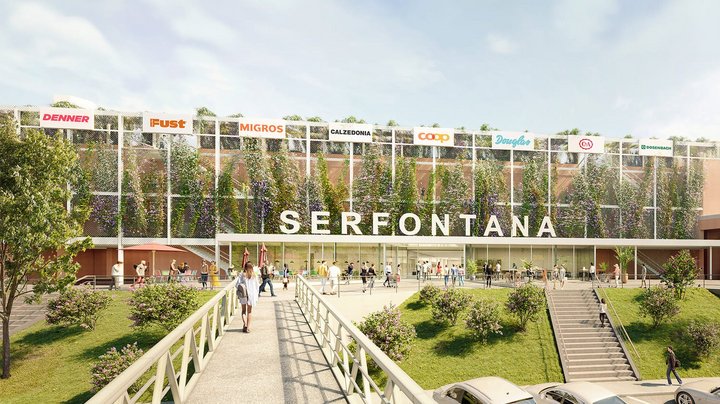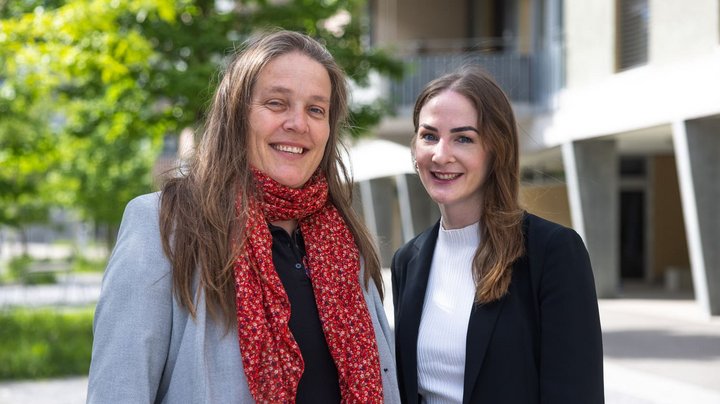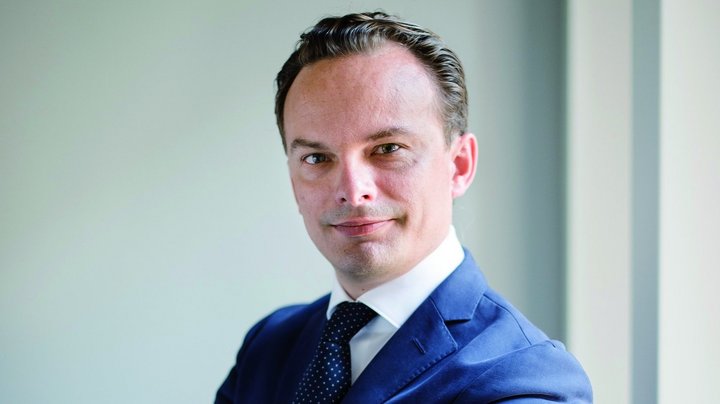A task with meaning, visibility and security

The interview was conducted by Remi Buchschacher and was originally published on September 16, 2025 on the platform RealEstateMove platform.
You take over Wincasa as CEO at a time when management is often criticized in the media. The Sugus houses are just one example. But there is also talk of falling fees and a shortage of skilled workers. How do you deal with this?
Philipp Schoch: The public debate, such as the Sugus buildings in Zurich, highlights the sensitivity and emotionality of the topic of housing. For this reason, we have introduced our Target Operating Model (TOM) and clearly separated the organization along the usage classes of residential and commercial real estate. This allows us to bundle our expertise, shorten paths and create clear responsibilities - right up to the management level.
On the shortage of specialists: TOM offers new functions here. In the past, there were only managers who performed all functions. We have now divided up the areas of responsibility and there are now, for example, letting specialists who show, inspect and hand over apartments. We no longer only have to look for specialists who cover all functions, but can now take a more targeted approach to the search and we can also develop lateral entrants more quickly, for example. Although this does not completely eliminate the shortage of skilled workers, it does make the search somewhat easier.
How is the market reacting to automation?
Falling fees are forcing us to automate. This is partly beneficial, but can also lead to less personal contact. I am committed to ensuring that management does not become a purely mass business where only the price counts. Nobody benefits from that. That's why clients need to recognize the value of our services. Fortunately, we operate in a market segment, mainly institutional clients, where this is still recognized.
Where do you currently see the biggest challenges in property management?
I see them in three main areas: Firstly, service quality and speed: being accessible, communicating transparently and delivering bindingly in the event of a claim. There are always many parties involved here and it is important that everything runs smoothly. It is the supreme discipline, so to speak. Secondly, expertise in the right place: this is why the TOM teams focus on B2C (residential) and B2B (commercial). Thirdly, cost-effectiveness: fees under pressure require economies of scale and automation. It is very important that customer proximity is maintained in this area of tension.
Philipp Schoch is the new CEO of Wincasa. Philipp Schoch took over the role of CEO of Wincasa AG on July 1, 2025. With more than 15 years of experience in the company, he brings with him extensive expertise in real estate management, the development of new business areas and the management of large teams.
Densification is a spatial planning must in order to provide the population with sufficient living space and stop urban sprawl. However, it is reaching its limits and is being heavily criticized. Tenants are also affected. What reactions are you getting?
We are of course feeling the excess demand and the shortage of supply very keenly. Especially when we have to limit viewing appointments to a certain number of people in urban centers. This leads to a lack of understanding among those looking for a home. Densification projects can also lead to social tensions within properties and complexes. We try to mitigate this with good communication and our real estate community management and estate coaching services. These services are growing rapidly and are becoming increasingly important. In this way, we want to support densification in a socially responsible and high-quality manner.
Last year, Wincasa introduced the TOM (Target Operating Model) system for property management. How does Wincasa approach such a TOM project?
The project has developed very well. It was triggered by the 2019 strategy phase. We are convinced that traditional property management will probably no longer exist in its current form in a few years' time. That is why we have completely repositioned ourselves. How do you bring such a large project to fruition over the years? There were two decisive factors: one was an internal project team that was involved from start to finish and was strongly committed to the project. The second factor was our external challengers, who "pushed" us through the project. It takes courage and the will to make a fresh start when a project like this threatens to fail from time to time. Every management organization is challenged by day-to-day business, which keeps us fully occupied. You can't do without a project team with the drive and time to implement such a major project.
What experiences have you had so far?
The experience so far has been very good. The clear focus on residential and commercial makes it easier for us to satisfy the different tenant needs. This focus has also been very well received by the property owners. The project was so good that we have now anchored it at management level. In the end, the question of whether it has made a difference is always answered by customers and employees, and both respond very well to a survey.
You have also introduced performance management. What does that mean?
As a management team, you have a lot of pending issues - so the question arises:
What is important? So it's about the KPIs, the measurable values, how a project or a team achieves its defined goals. Here, the two customer categories - tenants and owners - provide their feedback on performance on a daily, weekly or monthly basis. We present this graphically. This has resulted in a performance wall with screens at each location, on which all important services are displayed with figures. This allows the whole team to see at a glance how their own location is performing and where they may need to take countermeasures. And to provide an incentive for the teams, we have introduced awards with prizes for the best teams, which can be redeemed on a quarterly basis. The new management model should also deliver measurable success for the property owners.
You run a company that continues to focus on people. How do you manage to inspire existing employees and new talent for the constant change?
It is important for employees to have a job with meaning, visibility and security. And as an employer, it is important to offer and exemplify these qualities. Specifically, we show how TOM makes everyday life easier, make progress visible via KPIs and invest in training and further education as well as in dedicated quality management.
In our view, transparency is also important with new formats such as the CEO Talk as a live stream with guests or a podcast for all employees after management meetings. This ensures that decisions are communicated transparently, comprehensibly and promptly. Change is not a project, but a constant. Ultimately, however, the team and direct superiors are also important for job satisfaction.
The topics of "innovation" and "digital transformation" are very important for customers. How are you tackling these challenges at Wincasa?
When we talk about digital innovation, we need specific use cases. So what exactly do we want to improve? Let's take the digital onboarding process as an example: when the prospective tenant becomes a tenant, a lot happens via E-Rent, the digital rental contract. The Wincasa Home app makes it easy for tenants to communicate with the management. An AI chatbot helps to answer the most important questions. It continues with a tradesman platform for damage claims and digital notices to measurably improve availability, throughput times and quality. Innovation is also reflected in new products. Our Business Development and Consulting & Sustainability departments work closely together and, for example, translate sustainability data into auditable reports for all types and sizes of properties and portfolios.
A quick word about you personally: you are taking over as CEO of Wincasa and have been with the company for a long time. What visions would you like to realize now?
I've been with Wincasa for almost 18 years now and have been able to take on a new role every few years and also manage various departments. I therefore have a good backpack when it comes to our core services and customer expectations. One vision is to achieve very good management quality with a measurable service experience and thus strengthen the core business. We must never lose sight of this. To achieve this, we consistently align the organization with the usage classes, create clear responsibilities and combine operational excellence with innovation. The market confirms our course - new mandates such as ADPK, BLKB Fund Management, TX Group and Serfontana prove us right. I can already reveal that the new 2026+ strategy phase will bring further surprising elements.
Interview: Remi Buchschacher
The real estate service provider: Wincasa is the leading integrated real estate service provider in Switzerland and offers a broad portfolio of services along the entire real estate life cycle: from planning, construction and management to the revitalization and repositioning of a property. Founded in 1999, the public limited company is present in all parts of the country and has been part of Implenia since May 2023. www.wincasa.ch




